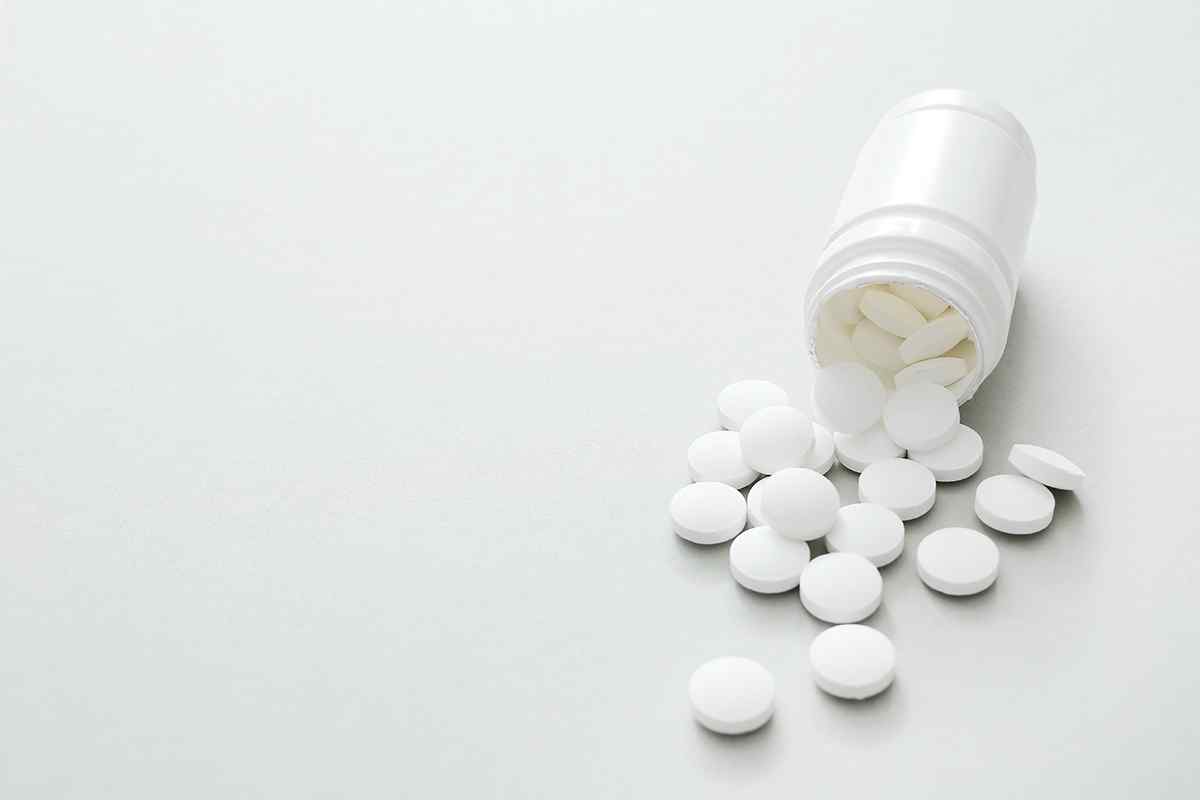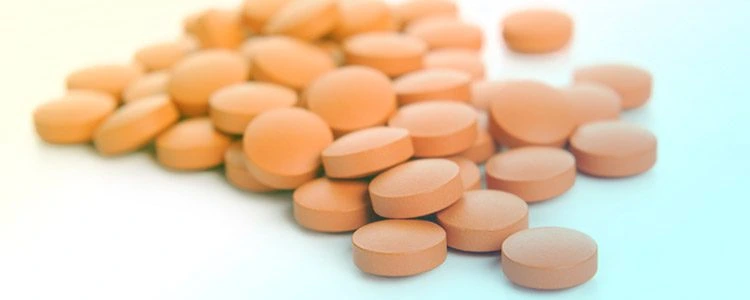Baclofen
Baclofen is a prescription medication that is used to treat neuropathic pain and manage certain types of spasticity.

Common Trade Names: Lioresal, Gablofen, Ozobax, Lyvispah
Baclofen belongs to a class of medication called skeletal muscle relaxants, and it is often prescribed to manage neuropathic pain and spasticity associated with spinal cord injury.The medication is structurally similar to gamma-aminobutyric acid (GABA), and studies indicate that it is a GABA agonist. While its exact mechanism of action is not yet fully understood, baclofen is known to depress synaptic reflex transmission, thereby inhibiting the release of excitatory neurotransmitters that are often associated with pain and spasticity.
In the United States, baclofen is a prescription-only drug.
Medical Uses of Baclofen
Baclofen has been shown to provide relief for muscle rigidity and flexor spasms with the associated pain and clonus, and it is widely used as an antispastic agent for conditions that are of cerebral or spinal origin. In particular, the drug is prescribed as an oral medication or administered into the spinal theca for the management of multiple sclerosis and other kinds of spinal cord diseases and injuries. In addition, oral baclofen has also been prescribed for trigeminal neuralgia, atypical facial pain, and cluster headaches.
When used as indicated, baclofen may improve mobility, provide the patient with a higher level of independence, and facilitate physiotherapy. It should also be noted that taking baclofen can exacerbate psychotic disorders, schizophrenia, confusional states, autonomic dysreflexia, and epilepsy. People who are suffering from these disorders should be kept under careful surveillance if they have been prescribed baclofen.
Abuse and Misuse of Baclofen
Baclofen is not classified as a scheduled substance under the federal drug scheduling system, but there has been an emergence of the non-medical use of baclofen in the past decade. A 2021 literature review jointly conducted by researchers from 3 hospitals in France revealed that there are currently 46 case analyses of the non-medical use of baclofen in multiple scientific databases. The review, which was paired with an analysis of the spontaneous reports of baclofen abuse recorded in an addictovigilance center in East France, indicated that the non-medical use of baclofen has been observed among people with and without a history of substance use disorder.
Achieving euphoria is the most common reason for abusing the drug, and the most common routes of non-medical baclofen administration are oral and sublingual and by inhaling (snorting) the substance.
The abuse and misuse of muscle skeletal relaxants like baclofen happen through the following means:
- Using the drug for conditions other than those that it is indicated for
- Increasing the frequency of use of the drug or taking it for longer than needed
- Sharing the medication with others or using another person’s prescription
- Taking the drug concomitantly with alcohol and other central nervous system (CNS) depressants
- Intentionally overdosing for recreational or self-harm purposes
Baclofen Drug Interactions
People who have been prescribed baclofen or those who may attempt to abuse and misuse the drug must not take it with CNS depressants and alcohol. Using these substances concomitantly with baclofen can have additive effects that may lead to extreme drowsiness and sedation.
Baclofen’s Adverse Effects
Using or abusing baclofen can cause a person to experience the following side effects:
- Confusion
- Constipation
- Dizziness
- Drowsiness
- Fatigue
- Headache
- Hypotension
- Insomnia
- Nausea
- Urinary frequency
- Weakness
They may also experience the following less common adverse reactions associated with the medication:
Neuropsychiatric:
- Ataxia (abnormal uncoordinated movements)
- Blurred vision
- Depression
- Diplopia (seeing two images of the same thing)
- Dysarthria (inability to control tongue and voice box, resulting in slurred speech)
- Dystonia (involuntary contraction of the muscle, resulting in twisting motions)
- Epileptic seizure
- Euphoria
- Excitement
- Hallucinations
- Miosis (shrinking of the eyes’ pupils)
- Muscle pain
- Mydriasis (dilation or widening of the eyes’ pupils)
- Nystagmus (involuntary movements of the eyes)
- Paresthesia (burning or prickling sensation in the hands, feet, or other parts of the body)
- Rigidity
- Strabismus (squinting or abnormal alignment of the eyes)
- Tinnitus (ringing or buzzing in the ears)
- Tremor
Cardiovascular:
- Chest pain
- Dyspnea (shortness of breath)
- Palpitation
- Syncope (fainting or passing out)
Gastrointestinal:
- Abdominal pain
- Anorexia
- Diarrhea
- Dry mouth
- Positive test for occult blood in stool
- Taste disorder
- Vomiting
Genitourinary:
- Dysuria (pain or burning sensation during urination)
- Enuresis (bed wetting)
- Hematuria (presence of blood in the urine)
- Impotence
- Inability to ejaculate
- Nocturia (frequent need to urinate at night)
- Urinary retention
Other:
- Ankle edema
- Excessive perspiration
- Nasal congestion
- Pruritus (itchy skin)
- Rash
- Weight gain
Signs of Baclofen Overdose
A person who has overdosed on baclofen may exhibit the following symptoms:
- Accommodation disorders or inability to focus one’s eyes
- Coma or progressive drowsiness
- Dizziness
- Hypotonia progressing to loss of consciousness
- Lightheadedness
- Respiratory depression
- Seizures
- Somnolence
An overdose is a medical emergency that requires the immediate attention of medical professionals. The treatment for baclofen overdose may include gastric decontamination.
Baclofen: Dependence, Withdrawal, and Addiction
Baclofen has the potential for both overdose and withdrawal, and the drug has also been abused for its euphoric effects.
Individuals may abuse baclofen for long periods of time to attempt to take advantage of its euphoric effects, but studies have shown that chronic use of the drug can lead to withdrawal symptoms. Researchers and drug manufacturers warn against abruptly stopping the use of baclofen as doing so can lead to these aforementioned withdrawal symptoms, which may include:
- Hypermetabolic states
- High fever or hyperthermia
- Altered mental status
- Hallucinations
- Exaggerated rebound spasticity
- Muscle rigidity
- Tachycardia (very fast heart rate)
- Hypertension (high blood pressure)
- Seizures
In rare cases, these withdrawal symptoms can also advance to rhabdomyolysis (breakdown or death of muscle tissue), multiple organ-system failure, and death.
It should be noted that the development of withdrawal symptoms is indicative of dependence on the drug. However, this does not necessarily mean that a person has developed substance use disorder or addiction. Dependence on the drug refers to a person’s inability to function normally without the influence of the drug in their system. Abruptly stopping the use of the said substance, then, can lead to marked cognitive, behavioral, and psychomotor abnormalities as the person goes through their daily activities. In contrast, addiction refers to compulsive or obsessive drug-seeking behavior. This condition is marked by a pathological pattern of craving, seeking, and using the drug despite its negative effects on one’s life.
Breaking Free from Baclofen Abuse
If you are taking baclofen, it’s important to reevaluate your relationship with the drug and how much you depend on it to accomplish your daily goals and activities. Should you need to wean yourself off of the substance, you should be aware of the withdrawal symptoms that you can experience. It is best to consult with a medical professional who can help you slowly taper off your use of the drug and provide you with medications that will help you deal with the withdrawal symptoms.
At the same time, it’s important to take note that there are different treatment methods that are available to you during this period. Here are the two most common:
- Inpatient treatment: An inpatient treatment program will require you to live in a dedicated facility where you can be under the supervision of medical professionals. This treatment method is often recommended to patients who have moderate to severe symptoms due to the drug abuse, as well as comorbidities such as thoughts of self-harm, other addictions, and repeated relapses. While living in the facility, you may be required to attend group and individual therapy, self-help meetings, and relaxation and coping classes.
- Outpatient treatment: An outpatient treatment program will enable you to attend to your regular responsibilities while seeking professional help for your condition. It is recommended for patients who have a strong support network at home and in their communities. Because the treatment is provided in an outpatient setting, the overall duration of an outpatient treatment program may be longer than that of inpatient treatments.
If you need help in finding a drug rehabilitation facility in your preferred location, you can call Better Addiction Care at (800) 429-7690. One of our recovery support advisors can direct you to a rehabilitation facility near your location, and they can also help you verify your insurance or find other financial options to support your treatment. Begin your journey to sobriety today by calling BAC.
A Short History of Baclofen
Baclofen was synthesized in 1962 by Heinrich Keberle, a Swiss chemist at the pharmaceutical company Ciba-Geigy. It was originally developed as an anticonvulsant drug, but the results were disappointing. Nevertheless, it was found that baclofen reduced spasticity among the participants.
Baclofen was reintroduced to the market in 1971 and has since become one of the most widely used muscle relaxants in the world.







